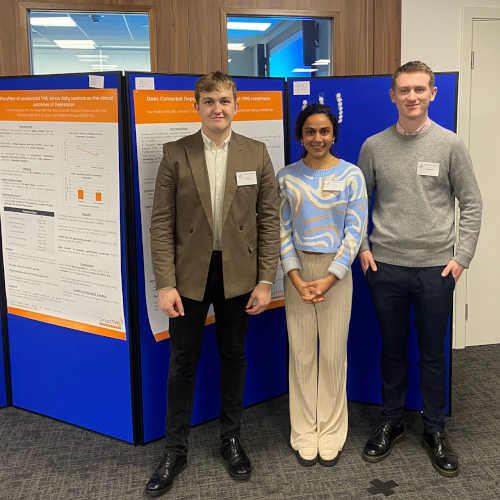Smart TMS went to the RCPsych Annual ECT and Neuromodulation Conference
December 14, 2022 - Smart TMS

Dr Leigh Neal and Gerard Barnes Co-founded Smart TMS in 2015
Dr Neal, a consultant Psychiatrist, followed the development of TMS technology for many years because the technology was very impressive to him. When NICE approved the use of TMS for the treatment of depression, it encouraged Leigh and Gerard to found Smart TMS. They felt that this innovative technology would improve the lives of many patients.
Smart TMS has always been passionate about getting patients well again. Transcranial Magnetic Stimulation is a relatively new treatment in the UK which means we have an opportunity. The opportunity to educate others on the positive effect that TMS can have on someone’s life.
Since being founded Smart TMS has treated in excess of 800 patients. With this number of patients, we have completed regular reviews of our data and statistics so that we can provide the most up-to-date and accurate details of remission and recovery that we are seeing in our patients.
The Conference
In late November some of our practitioners attended the RCPsych Annual ECT and Neuromodulation Conference 2022. Where they presented three posters that detailed the outcomes we had seen from TMS treatment in a number of patients.
Our practitioners Ben, Eoin, and Rio presented posters of their research.
Ben presented “TMS and OCD: Investigating the effects of rTMS on obsessions and compulsions”. Results indicated that rTMS treatment significantly reduces overall YBOCS scores. This shows that rTMS may be more beneficial in treating the obsessional aspects of OCD.
Eoin presented “The effect of accelerated TMS versus daily sessions on the clinical outcomes of Depression”. Which showed that the frequency at which TMS is delivered does not affect the outcome when treating depression.
Rio presented her poster “Does Comorbid Depression severity impact TMS treatment outcomes for OCD?”. Concluding that OCD patients with comorbid depression are just as likely to see improvements in their OCD symptoms with TMS compared to those without comorbid depression.
The posters sparked questions about the frequency of TMS treatment and the after-effects of treatment on an individual. TMS does not have the same effects on a patient as ECT does. TMS patients are outpatients able to go about their daily lives following TMS sessions. And the frequency of TMS treatments delivered depends on the patient and the prescription our clinician provides. Sometimes they are able to have multiple sessions in a day, ultimately not affecting their ability to be an outpatient.
More Research is Needed
All of these studies show that we need more research to confirm these outcomes and replicate the findings, with larger and more varied samples. We hope to complete more reviews of the data we gather at Smart TMS.
If you would like to reach out to any of our practitioners to discuss their findings, please do not hesitate to contact us on 0345 222 5678 or email info@smarttms.co.uk, and they will be happy to help.
TMS is a fascinating subject and an innovative treatment. If you want to find out more about referring your patients, please check out our webpage here.










